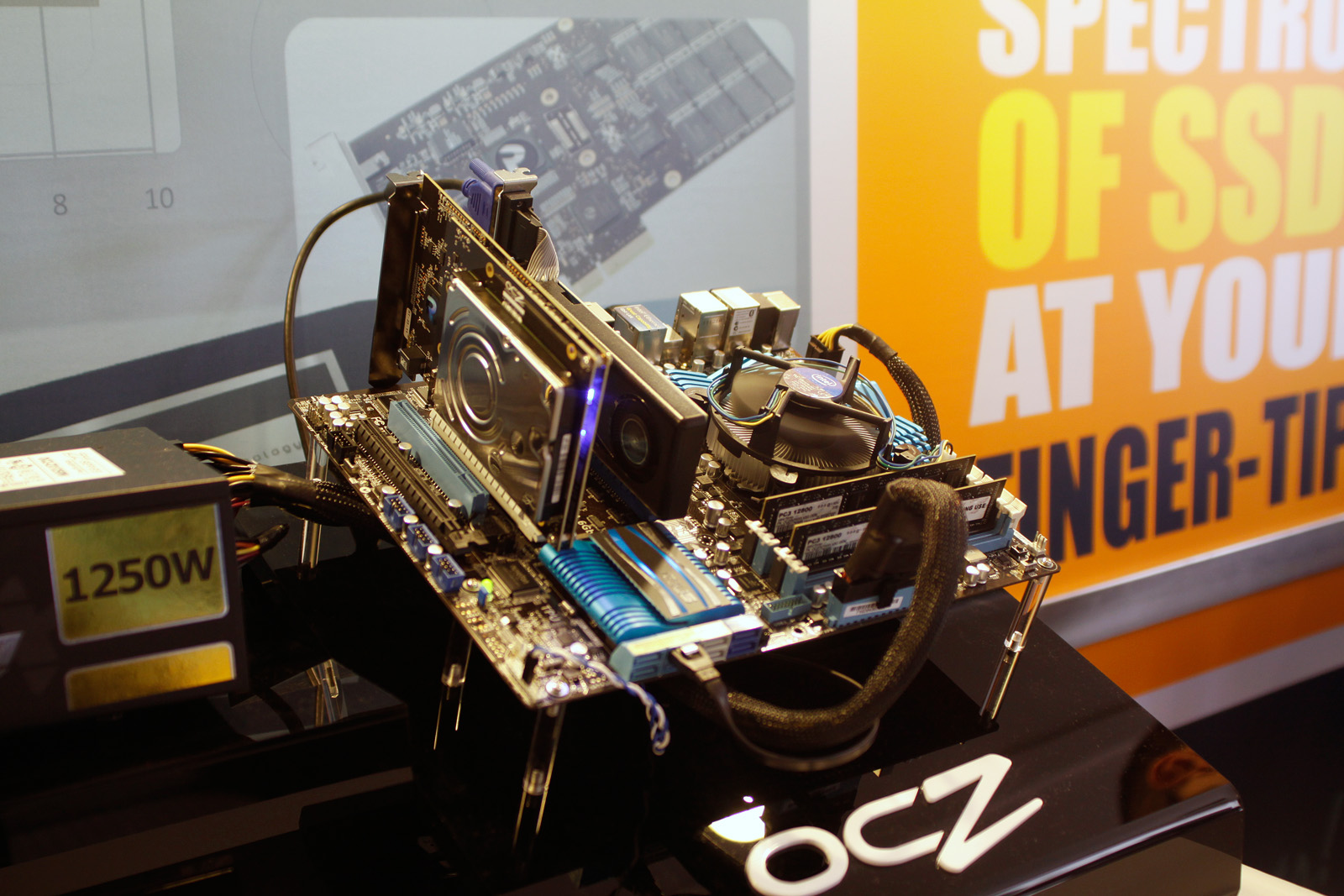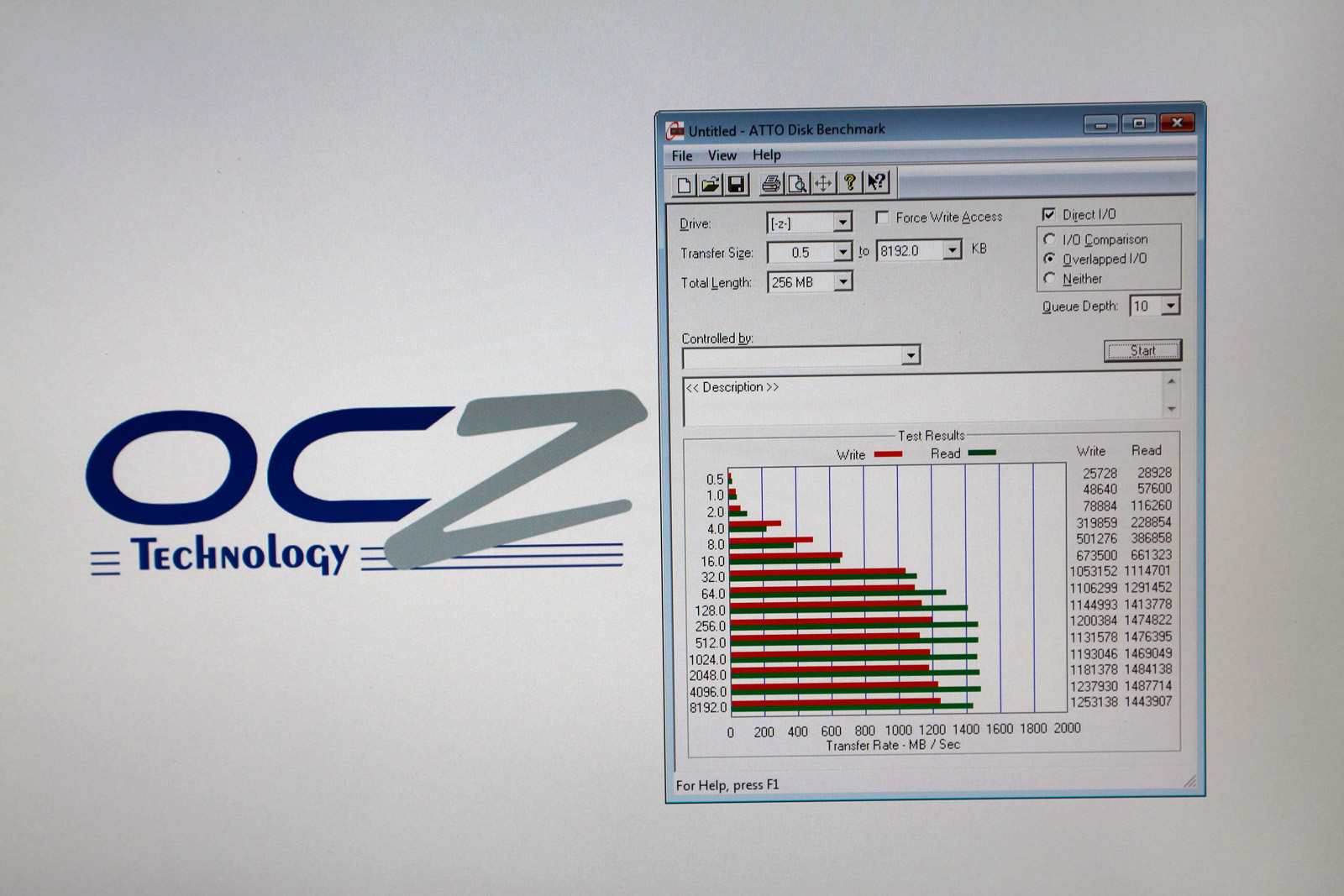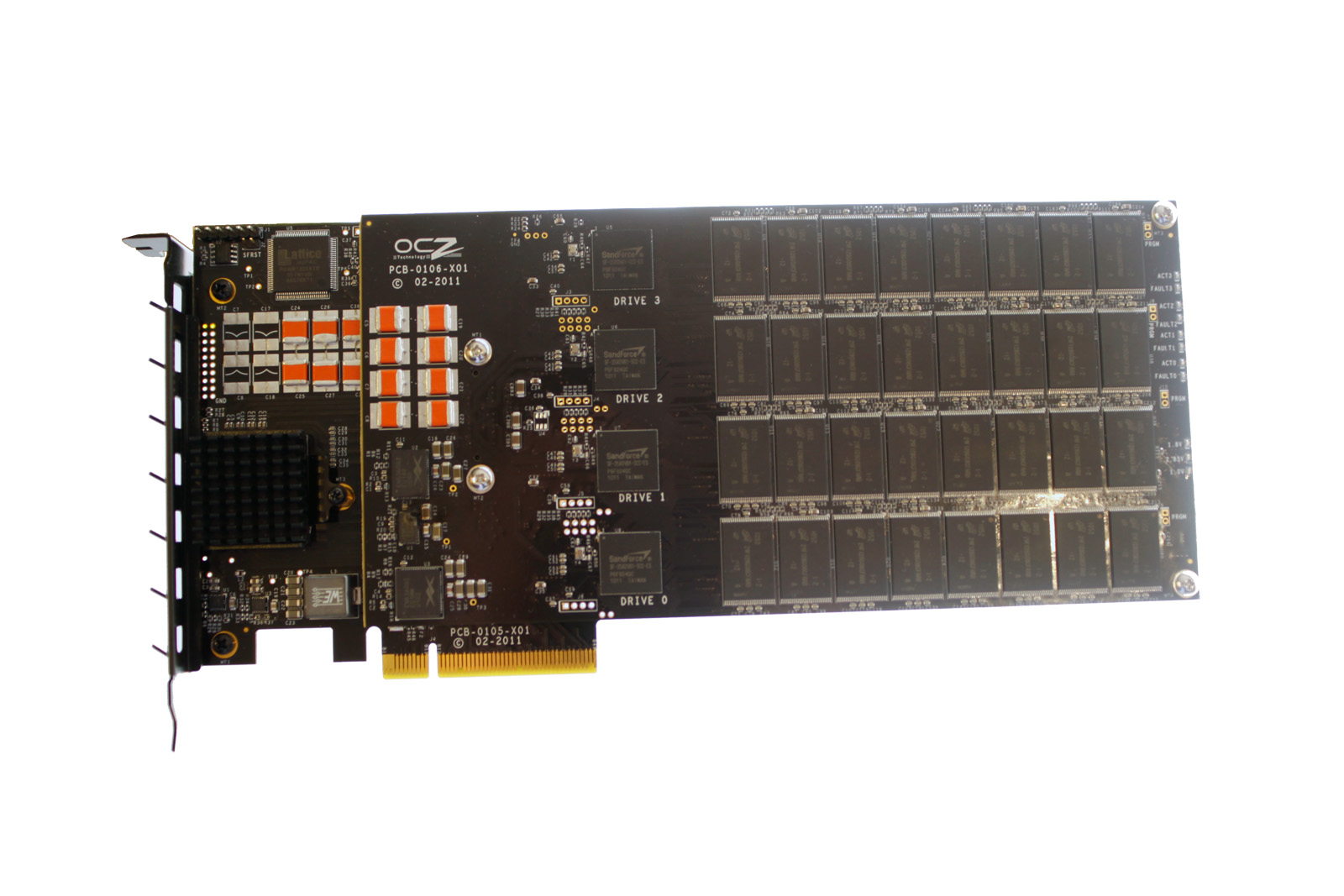OCZ RevoDrive Hybrid vs. Intel Z68 SSD Caching
OCZ's solution is mighty fast.
Where Intel’s Z68 complemented a normal hard drive with a comparatively small SSD, OCZ takes the opposite approach on the Revo Hybrid – literally strapping a notebook hard drive to the Revo Drive 3 X2. The goal is obviously to combine the benefits of both storage technologies, namely large capacities, high transfer rates and fast access times. The caching side of things is handled by a software called Dataplex, developed by NVELO. According to company information, Dataplex does a better job than Intels Smart Response technology.
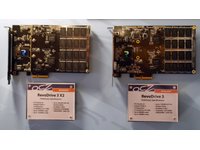
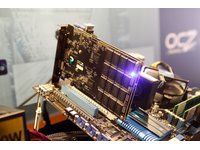
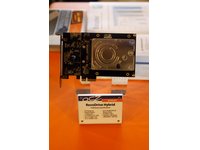
Our team at Computex managed to get some numbers comparing the two systems. On a Z68 system equipped with a 500 GB HDD (7,200 rpm) and an unspecified 60 GB OCZ SSD, Intel’s SRT achieved a score of 25195 in the HDD Suite if PCMark Vantage in Max mode. The Dataplex enabled system topped that, coming out at 28071. If this kind of improvement is possible through software, we’re hoping OCZ will also bundle Dataplex with its SSDs in the future, allowing users to set up their own SSD cache even without Intel's Z68. While the NVELO claims its software works with any combination of HDD and SSD and any AMD or Intel Chipset/CPU combination running Windows 7, OCZ currently has no such plans to expand outside its own products.
Vertex 3 EX
OCZ also showed at Computex 2011 some new enterprise models. Among them were the Vertex 3 EX, a drive that shares all of the characteristics of the Vertex 3 Pro but uses SLC flash. The read and write speeds remain identical at 550 MB/s and 525 MB/s respectively, but it can sustain a higher IOPS at 4K block sizes than the Pro, coming in at 80,000 where the MLC drive is rated at 70,000 IOPS. Beyond that, all specs as well as capacities are identical to the Pro model.
Ludicrous Speed
No show would be complete with some amazing demonstration of technological brute force. At OCZ was a system with six Z-Drive R4 88 achieving over 1 million IOPS. Who wouldn't want that?
Get Tom's Hardware's best news and in-depth reviews, straight to your inbox.
-
alidan like i said in the last one, the speculated price of the hdd strapped to the ssd makes it a crappy option, it puts the ssd at 5$ a gb, if they could get it down to 2 or 3$ a gb, thats a different story, but this thing just add a mechanical storage device to a pcie slot and gives you mid teir ssd for top teir (consumer) prices.Reply
the other 2 drives are far more interesting. -
kristoffe also, when did engineers at ocz forget that the dynamics of a hard drive do not enjoy being mounted upside down? I have even seen dell towers with a flipped hdd belly up. really?Reply -
mdahouse kristoffealso, when did engineers at ocz forget that the dynamics of a hard drive do not enjoy being mounted upside down? I have even seen dell towers with a flipped hdd belly up. really?I've never heard that HDD have to be mounted a certain way up. All of the laptops I've every owned have had the HDD mounted with the circuit board facing upwards.Reply -
nebun kristoffealso, when did engineers at ocz forget that the dynamics of a hard drive do not enjoy being mounted upside down? I have even seen dell towers with a flipped hdd belly up. really?i don't think it really matters, at least not in laptop hdd, the arms are flexible enough to cope with the gravitational pull...at least that's what i thinkReply
-
drwho1 forget $5, $3 or even $2 per GB, until SSD's reaches $1 or LESS per GB I'm not interested.Reply -
lelutinbanni drwho1forget $5, $3 or even $2 per GB, until SSD's reaches $1 or LESS per GB I'm not interested.Reply
AMEN
-
Kaiser_25 Ya PCIE SSD solutions...are kinda meh, difficult to boot from, and more importantly, for a good number of enthusiasts you lose a pcie slot...ie 1 less vid card, many people nowadays go SLI and Crossfire, ill stick with SATA3 SSD...Reply -
TeraMedia Why'd they force the use of a small, comparatively-slow laptop drive when they could have simply put on a SATA 3 port instead of mounting a 2.5 drive, and let the buyer mount a HDD of choice to the case? Their approach just seems like more design work for limited (if any) incremental value.Reply -
LordConrad drwho1forget $5, $3 or even $2 per GB, until SSD's reaches $1 or LESS per GB I'm not interested.Too bad for you then, because the Vertex 2 in my laptop is screaming fast and I'm loving it.Reply -
alidan LordConradToo bad for you then, because the Vertex 2 in my laptop is screaming fast and I'm loving it.Reply
they are good, but to expensive for my needs. i need a 250gb drive, the no seek time is the reason, crap takes to long to load, just moving between folders.
i also need another 1tb minimum, again takes to damn long to load things, from a seek prospective.
